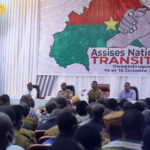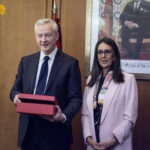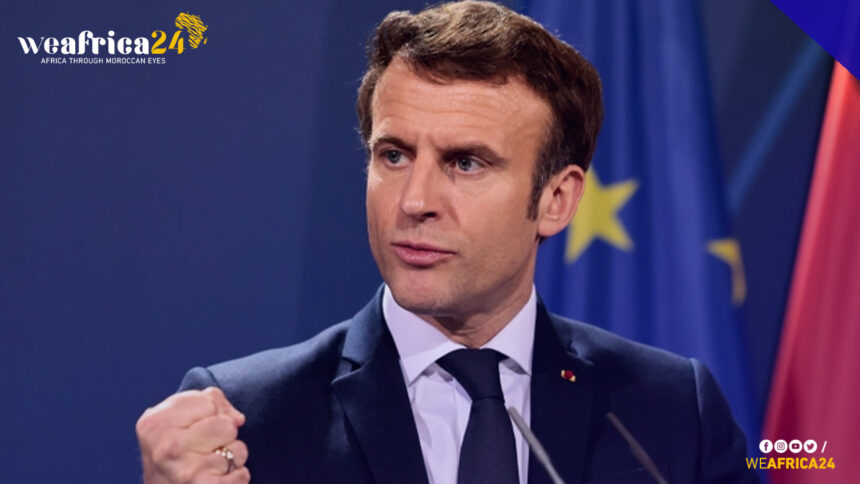Starting his diplomatic tour of Central Africa on Wednesday, French President Emmanuel Macron aims to build a new “responsible relationship” with the continent amidst growing anti-French sentiments in some former colonies. Macron’s tour will take him to four countries, including Gabon, Angola, the Republic of Congo, and the Democratic Republic of Congo.
Macron’s visit comes at a time when Paris is increasingly concerned about Russia’s rising influence in Francophone African countries, and China’s growing presence in the region.
French President François Hollande will participate in activities at the One Forest Summit in Gabon aimed at conserving forests across the globe, including those in the Congo River basin, one of the world’s largest forests.
Spanning over 1.62 million square kilometers (equivalent to more than 625,000 square miles), the Central African forests serve as the second-largest carbon sink on Earth, trailing only the Amazon rainforest. The region is home to a rich diversity of flora and fauna, including forest elephants, gorillas, and vestiges of early human settlements.
However, these forests are under numerous threats, such as poaching, deforestation due to the palm oil and rubber industries, as well as illegal logging and mineral extraction.
Gabon’s President receives a political boost
As part of his address on Monday, French President Emmanuel Macron outlined his vision for a proactive and mutually beneficial relationship between France and Africa, with an emphasis on climate change.
He reiterated his commitment to breaking from the post-colonial policies of the past, such as measuring France’s influence through military operations, exclusive ties with certain leaders, and entitlement to certain economic markets due to past presence.
However, Gabonese environmental activist Marc Ona Essangui expressed concerns that Macron’s visit would overshadow the main objective of the rainforest summit, which is environmental conservation. Essangui suggested that many Gabonese people would view the visit as a political boost for President Ali Bongo Ondimba ahead of the upcoming presidential elections later this year. Bongo has been in power since succeeding his father’s long rule in 2009.
Macron has expressed that Africa is a priority of his second term, and has made efforts to enhance French ties with English- and Portuguese-speaking parts of the continent. After visiting Gabon, he will travel to Angola, Congo-Brazzaville, and the Democratic Republic of Congo, which was ruled by Belgium during the colonial era.
The turmoil in the Sahel region
Macron’s tour comes after disturbances in the northern Sahel region.
Paris has had a falling out with the new military leaders in former French colonies Mali and Burkina Faso, and as a result, withdrew its troops from both countries after years of supporting them in the fight against jihadists.
France, together with its Western partners, has alleged that the Russian private military contractor Wagner, which is recognized for its activities in Ukraine and Syria, is currently operating in Mali and the Central African Republic, both of which were formerly under French control.
In addition to the accusations against the Russian private military contractor Wagner, France has also accused Russia of spreading false information to harm French interests in Africa. On Monday, President Macron declared in a speech that the French military would reduce its presence on the continent in the following months and change its outposts into training institutions or “partner” bases that would collaborate with more African forces.
It is estimated that there are over 3,000 French soldiers in Senegal, Ivory Coast, Gabon, and Djibouti, as well as 3,000 in the Sahel region, including Niger and Chad.
According to a French military source, the French army is hesitant to close its bases in the region, including to prevent Wagner from gaining more influence there.
IFRI analyst Elie Tenenbaum believes that Macron’s plans will have a difficult time being implemented. The general staff’s desire to maintain the status quo conflicts with the president’s vision of turning the tables, he told AFP.







